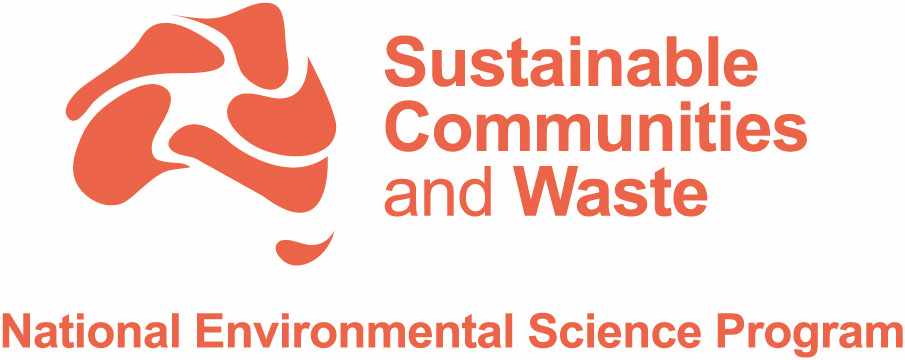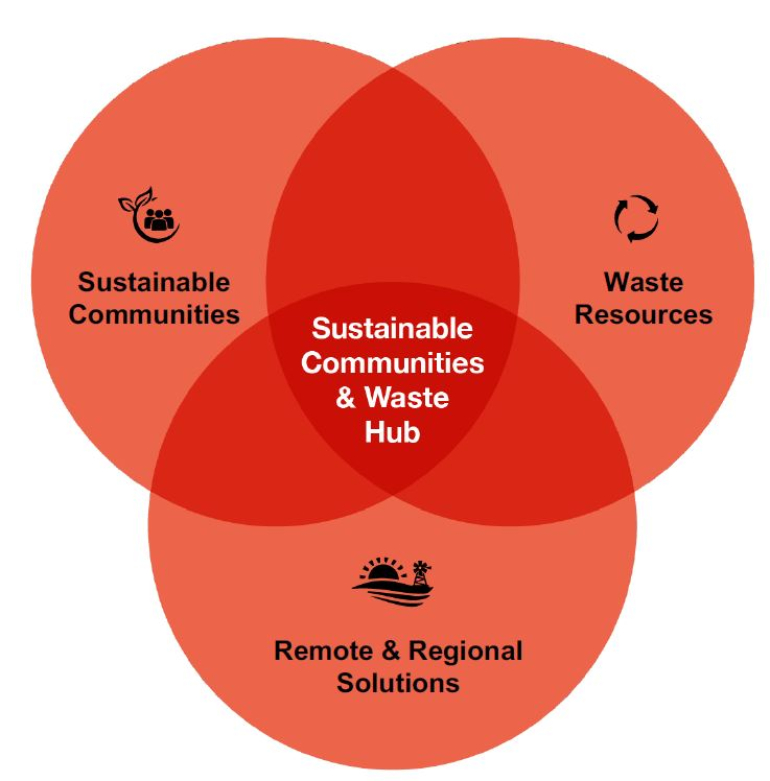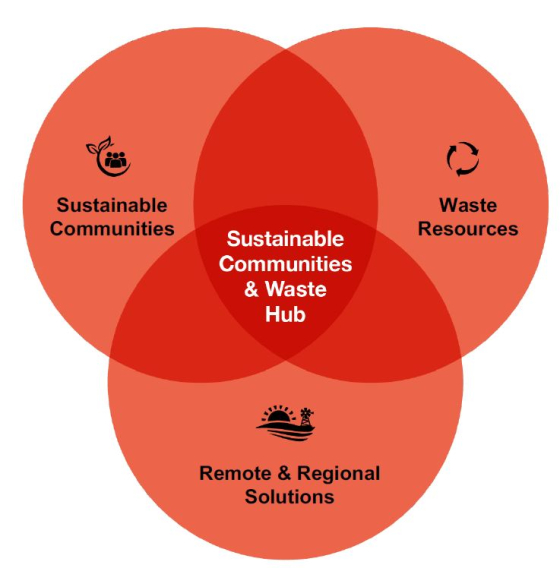The Hub has published its 2022 Research Plan to address key priorities identified during co-design discussions that occurred as part of the 2021 Research Plan.
The Hub is enabling a systemic, transformative response to Australia’s sustainability, waste and pollution challenges through the integration of key research fields, including ecology, engineering, environmental monitoring, public health, data science, technology, behavioural change, environmental economics, business innovation, design, and regional and urban planning.
The research of the Hub is being undertaken across many parts of Australia’s urban, regional and remote communities and environment. Working closely with all levels of government, private industry, NGOs and communities - including Indigenous - to co-design and co-implement research projects and co-create knowledge products, will provide positive outcomes towards solving the complex waste and sustainability problems that negatively impact society and the environment.
2022 Research Plan is located in the 'Annual research plans' section at the bottom of the main Research webpage on this site.
Hub projects undertaken by the five Impact Priority (IP) areas will align to one or more of the following three Hub Thematic Areas:
- Sustainable Communities explores ways to enhance and inform sustainable social outcomes, policy and cultural challenges, and the health, wellbeing and liveability of Place, including what is needed to protect, preserve and increase prosperity.
- Waste Resources explores the ways that a range of materials, such as microplastics, tyres and e-waste can be recovered and revalued through innovative technological solutions, and a better understanding of waste flows through society.
- Remote & Regional Solutions explores how place-based, fit-for-purpose solutions can be developed as a response to local needs across Australia, in remote and regional communities as well as urban. It focuses on building economies of purpose rather than purely economies of scale.


